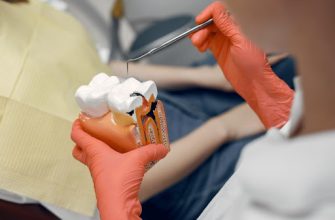- Introduction to Betel Nut Chewing: Understanding the Dangers
- How Betel Nut Chewing Affects Your Teeth and Oral Health
- Step-by-Step Guide on How to Avoid Damaging Your Teeth by Chewing Betel Nuts
- Frequently Asked Questions About Betel Nut Chewing and Teeth Damage
- Top 5 Facts People Must Know About the Dangers of Betel Nut Chewing
- Conclusion: How to Protect Your Teeth From Harm While Still Enjoying the Benefits of Betel Nut
Introduction to Betel Nut Chewing: Understanding the Dangers
Betel nut chewing is an age-old tradition that is still practiced in many parts of the world. Initially, the practice was confined to India, Sri Lanka and other parts of South Asia but over time it has spread to various other regions. Betel nut, or areca nut as it is sometimes called, is a popular stimulant drug extracted from the Areca catechu palm tree. It has highly psychoactive properties which can be addictive and can lead to serious health problems when chewed in excess.
There are several dangers associated with betel nut chewing that must be taken into consideration. One of the most important concerns is potential addiction; if you chew too much for too long, your body may rely on these chemicals for stimulation much like with any other recreational drug. Many users report feelings of euphoria combined with increased ability to concentrate after partaking in betel nuts; while this can be beneficial initially, overuse of this powerful substance could become an issue if used improperly. Additionally, it has been found by health officials throughout Southeast Asia that certain plant materials used in betel nuts might contain carcinogenic agents that can increase your risk for cancer if consumed regularly without proper precaution and moderation. Other related effects include dizziness, nausea, liver and heart damage as well as possible stroke risks raised by impairing oxygen supply to the brain via excessive endorphins released through consumption of betel nuts along with tobacco substances contained within them in some cases.
Overall, although there are clear potential benefits associated with chewing betel-nut – such as improved mental focus or even reduced stress levels -users must take extra care not to overuse this mind-altering substance lest they find themselves facing the above mentioned negative side effects , which can range from mild discomfort to potentially life threatening harm. As always,”moderation is key” when engaging in any recreational activity!
How Betel Nut Chewing Affects Your Teeth and Oral Health
Betel nut is a tropical fruit from the Areca palm tree which has been used for centuries as a stimulant across southeast Asia and the South Pacific. The nut is chewed with lime and betel leaves, producing a red liquid that helps to release the stimulant properties of the nut. Betel nut chewing is still practiced today in these regions and is gaining popularity around the world due its supposed “energy boosting” effects. While some studies have shown moderate health benefits associated with betel nut consumption, there are several potential drawbacks with regards to oral health.
When betel nuts are chewed it leads to increased saliva production. This increased salivation can lead to problems such as enamel erosion, discoloration of teeth, sensitivity of dentin, gingival recession and tooth loss eventually leading to gum diseases like gingivitis, periodontitis and sepsis.
The habit of betel nut chewing also causes discoloration of teeth; the red juice released during chewing stains teeth due to its pigments called tannins leaving behind brown or yellowish patches on tooth surfaces which may not be able to be reversed by brushing alone. Chewing also causes hard deposits on tooth surfaces known as calculus or tartar while long-term use should direct your attention toward oral cancer risks.
Tobacco smoking further increases these risks when compounded with betel nut chewing; it makes individuals more prone towards developing mouth cancer and other similar conditions related to carcinogenic weapons present in smoke forming chemical ideas once they come in contact with general salivation within your mouth after consuming this active ingredient-filled fruit daily and simultaneously causing their own damaging side effects plus causing several additional infections like leukoplakia in surrounding gum lines along each single ridge within your inner check environment too!
Therefore if you want maintain healthy habits, it is advised you avoid any forms of betel nuts either through ingestion or merely being exposed to them without inhaling their chemicals
Step-by-Step Guide on How to Avoid Damaging Your Teeth by Chewing Betel Nuts
Chewing betel nuts can be a great way to relax and improve your energy levels, but it does come with its own set of risks. In addition to the potential for addiction, long-term use of the drug can severely damage your teeth. Here is a step-by-step guide on how to avoid damaging your teeth while chewing betel nuts:
1. Be mindful of plaque and tartar build up – Plaque buildup on the surface of your teeth can lead to tooth decay and cavities if left untreated. Chewing betel nut may make it easier for bacteria to stick to the surface of your teeth leading to more plaque build up. To help prevent this, make sure you brush twice daily (including right after eating betel nuts) with a soft-bristled toothbrush and fluoride toothpaste. Additionally, flossing once per day helps keep plaque from building up around the gum line in hard-to-reach areas that brushing doesn’t always reach.
2. Rinse your mouth out afterward – After eating betel nut, rinsing out your mouth quickly may help remove bacteria from sticking to surfaces and forming plaque or tartar buildup on teeth over time. Use an antimicrobial mouthwash each time for best results!
3. Watch what type of treat you’re using as a chaser – Many people like to follow up their betel nut chew with a sweet treat like candy or ice cream; however, such sugary snacks will only increase the risk of cavities because they provide extra fuel for cavity causing bacteria in our mouths! Whenever possible swap out those sugary options with healthier alternatives like fresh fruits or vegetables instead!
4. Make sure you’re visiting the dentist regularly – Visiting your dentist at least twice a year not only helps ensure any potential issues are caught early but also allows them time needed to debride away excess tartar deposits that accumulate over time — which if left untreated could
Frequently Asked Questions About Betel Nut Chewing and Teeth Damage
Betel nut chewing is a habit practiced by many in Southeast Asia and Polynesia. It has been linked with certain medical complications and the potential for adverse effects on dental health. Here, we will answer some of the most commonly asked questions about betel nut chewing and its implications for teeth damage.
1. What are betel nuts?
Betel nuts are the consequences of the Areca palm tree, which grows in tropical regions known as ‘Areca catechu’. The nut itself looks similar to a date and has a hard coating that must be peeled off prior to being chewed. Although typically associated with Southeast Asia, betel nuts are widely consumed in various parts of India, South China, Taiwan, Hawaii and several other countries around the world.
2. What are its main active constituents?
The main active ingredients found in betel nuts include alkaloids – such as Arecoline – as well as flavonoids including kaempferol-3-O-rhamnoside, luteolin-7-O-rutinoside and swertisin; phenolic acids; resins; oils; steroids; gums; carbohydrates; saponins; tannins; organic acids such as malic acid, citric acid and tartaric acid. The majority of these compounds interact directly with receptors located within the digestive tract to stimulate oral secretion upon contact with saliva during mastication
3. How can it affect your teeth?
Regular consumption of Betel Nut may lead to enamel abrasion due to repetitive contact between the nut’s surface and your teeth’s enamel when being chewed or ground up into wine like secretion in order for it to be properly digested or absorbed within our bodies further indirectly affecting our overall adjacent dental health as well through adaptation infection via direct or indirect contact from either saliva droplets or oral bacterial fluid existent when
Top 5 Facts People Must Know About the Dangers of Betel Nut Chewing
1. Betel nut use can lead to the development of oral cancer: One of the most serious health risks associated with betel nut chewing is the development of oral cancer. The way betel nuts are typically chewed and then stored in the mouth, as well as its various chemical constituents, can cause chronic inflammation in the oral cavity which may lead to malignancies. Signs that a person is at high risk for developing this type of cancer include an increase in red or white sores in the mouth and difficulty swallowing.
2. Betel nut use can be harmful to pregnant women: Pregnant women should avoid using betel nuts since it has been linked to adverse effects on miscarriage rate and fetal growth restriction. In addition, excessive betel nut consumption has been associated with preterm delivery, labor dystocia and stillbirths.
3. It can cause addiction: Chronic usage of betel nuts may result in physical addiction as it contains high amounts of arecoline, a mild stimulant that can create an addictive buzz when consumed over time or in large quantities. Even if you don’t feel like you’re dependent on them yet, taking precautions such as limiting your exposure by only using it occasionally is often best for extended long-term health outcomes.
4. Betel nut chewers have an increased risk for cardiac issues: Chewing on these substances causes an increase in blood pressure which could lead to heart arrhythmias and other serious cardiac irregularities over time if used frequently without moderation or due caution by those at risk or that have a history of medical troubles involving their heart’s functioning normally..
5. It may lead to poor gum health: Chewing on these items while they are smoked or stored between lip folds within cheeks may also contribute towards poor gum health by leading into different types of teeth discoloration and even receding gums ultimately leading up to exposed root surfaces making cavity susceptibility much more likely..
Conclusion: How to Protect Your Teeth From Harm While Still Enjoying the Benefits of Betel Nut
Betel nut is a popular stimulant and health supplement found in many cultures around the world. It has been cultivated for centuries, with its mild stimulating effects used to enhance mental and physical performance. However, it also contains tannins and other compounds that can be potentially harmful to oral health. To enjoy the benefits of betel nut while avoiding potential damage to your teeth, here are some tips.
First, use betel nut in moderation – excess consumption has been linked to an increased risk of dental caries and periodontal disease. Additionally, it’s best not to chew on pieces too hard or for extended periods of time as this may increase wear on the enamel of your teeth. You should also take care not to swallow any pieces when eating betel nut products, as these contain irritants that could harm sensitive areas like the throat or stomach lining.
Second, make sure you clean your mouth out afterward by brushing or using a special anti-tannic mouthwash – this will help to keep plaque buildup at bay and reduce bacterial activity within the mouth that betel nuts can leave behind. Moreover, consider adding a bit of fiber-rich food into your diet after consuming betel nuts as this helps neutralize acids which could affect tooth enamel over time if exposed repeatedly.
Last but not least, don’t forget regular dental visits – these preventative measures ensure good oral hygiene which minimizes risk! According to this expert dentist in Pasadena CA, at the very least, you should visit a dental professional every 6 months. Stick with these instructions and you can still enjoy all the benefits while keeping your precious Pearlies safe from harm!




![Unlocking the Mystery of Black Gorilla Lug Nuts: A Story of Strength and Style [5 Essential Tips for Choosing the Best Lug Nuts]](https://baru-nuts.com/wp-content/uploads/2023/04/21-335x220.jpg)
![Rev Up Your Ride: The Ultimate Guide to Black Chrome Lug Nuts [Solve Your Wheel Woes with Expert Tips and Stats]](https://baru-nuts.com/wp-content/uploads/2023/04/22-335x220.webp)
![Binky Goes Nuts: A Tale of a Mischievous Pet and How to Keep Them Calm [Expert Tips and Stats]](https://baru-nuts.com/wp-content/uploads/2023/04/23-335x220.jpg)

